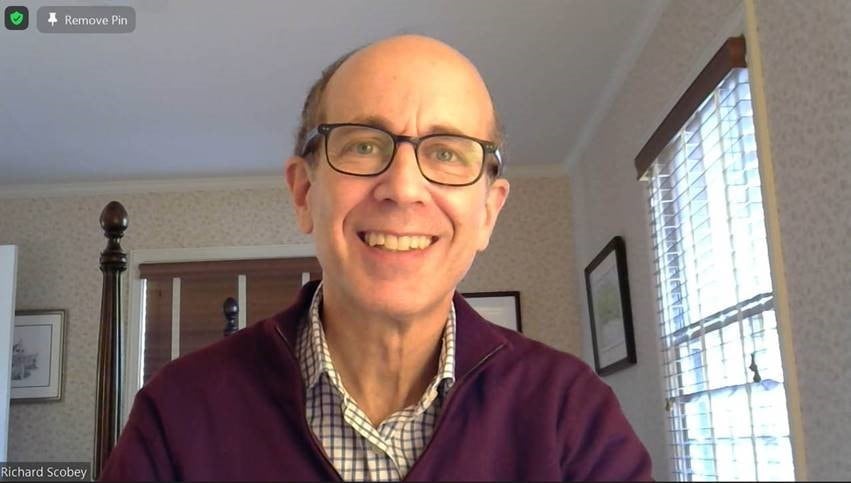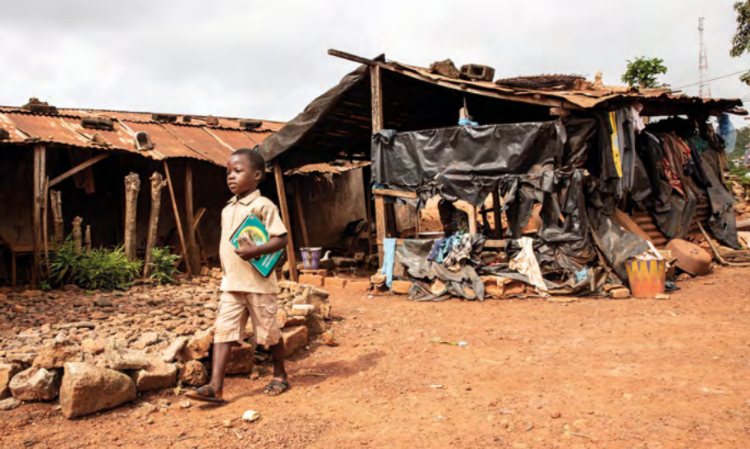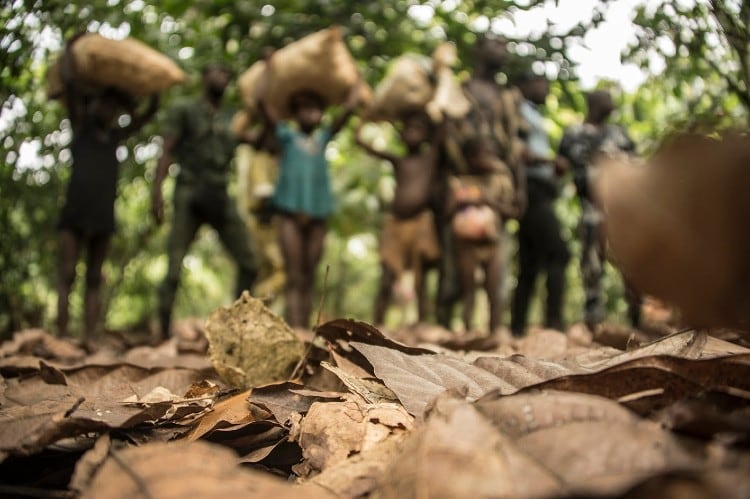Originally scheduled to take place in Bogota, Colombia, the WCF decided to host a virtual event, rather than cancel its meeting, to keep the sustainability agenda in the spotlight during what is becoming a testing time for the cocoa sector.
“Cocoa farmers around the world are facing unprecedented challenges in response to the health, economic and social impacts of COVID,” said Scobey. “At this difficult moment in time all of us want to do more to ensure a thriving sustainable and just cocoa sector. That's why we wanted to bring everyone together this year around the theme of ‘scaling impact in disruptive times’.”
The WCF will address the topic in four streams over a two-day period:
- Enabling environment - covering the European Union due diligence process, how business can contribute to build back better for sustainability, and winning models for sustainability partnerships.
- Prosperous farmers - a deep dive into living income interventions and outcomes, covering opportunities such as Farmer Development Plans and Financial Inclusion.
- Empowered communities – which takes a strong focus on strategies to fight child labour, and a look at impact investment and best outcomes in community empowerment investments.
- Healthy planet - keynote speeches on climate action and covering landscape approaches, looking at the link between agroforestry, living income and climate; and payments for environmental services.
Scobey said that one of the benefits of moving to a virtual event is that the WCF was able to reach a much broader audience from around the world.
The industry has continued to work closely with the origin governments, with farmers and other partners to make cocoa farming truly sustainable and profitable with transformation of farms into modern businesses that enable farmers to earn sufficient income to achieve a decent standard of living -- WCF President Richard Scobey
This year’s meeting has attracted 400 participants from 32 countries across six continents. “Our diverse membership is our greatest asset,” he said.
A lot has happened in the cocoa sector since the WCF last met a year ago in Berlin.
“Clearly the COVID pandemic has significantly disrupted every part of the cocoa supply chain,” said Scobey. “Cocoa grindings have declined by about 15% in the second and third quarters of 2020 compared to the previous year.
“This decline in demand has sent cocoa prices sharply lower and has contributed to a decline in global cocoa purchases. These market developments have created significant risks and adverse impacts for everyone in the supply chain.”
Economic risks
Scobey said the WCF’s top priority is to protect the lives and livelihoods of the millions of cocoa farmers around the world who are facing significant health and economic risks as a result of the COVID crisis.
He said that WCF member companies donated more than $835,000 earlier in the year to help farmers in West Africa, Asia and Latin America to fight COVID-19.
This was on top, said Scobey, of numerous individual contributions from companies that have totalled hundreds of millions of dollars.
Another important development over the past 12 months, claimed Scobey, was a growing global focus and commitment to achieving a living income for cocoa farmers.
“The industry has continued to work closely with the origin governments, with farmers and other partners to make cocoa farming truly sustainable and profitable with transformation of farms into modern businesses that enable farmers to earn sufficient income to achieve a decent standard of living,” he said.
More than ever, it is critical that industry and governments engage in a meaningful dialogue about how to protect farmer income at a time of reduced global demand, continued market uncertainty and a 2019-2020 market surplus according to the latest ICCO forecast -- WCF President Richard Scobey
Scobey told the meeting the WCF, and the industry as a whole, supports the new Living Income Differential (LID) policy that Cote d’Ivore and Ghana introduced in July 2019 as part of a shared strategy to raise farmer income.
“Our company members have independently and voluntarily incorporated the LID into all of their individual procurement plans for the 2020-2021 crop season.”
Le Conseil du Café Cacao and Ghana Cocoa Board, representing Cote d'Ivoire and Ghana cocoa industry, respectively, have flagged concerns about the decline in cocoa purchases and the implementation of the LID during the past months of the COVID-Pandemic, said Scobey.
Joseph Boahen Aidoo, CEO of Ghana Cocoa Board, is due to address the meeting on Thursday (19 November) where he will talk more about the impact of the pandemic on cocoa-growing communities in his country.
“More than ever, it is critical that industry and governments engage in a meaningful dialogue about how to protect farmer income at a time of reduced global demand, continued market uncertainty and a 2019-2020 market surplus according to the latest ICCO forecast.”
Scobey said that as well as focussing on increasing farmer income, the industry must also ensure that cocoa is grown responsibly.
The WCF says it agrees with Ghana and Cote d’Ivoire that the LID and sustainability programmes should co-exist and complement each other.
“The LID and the company sustainability programmes are both essential and mutually reinforcing … they’re two sides of the same coin,” said Scobey.
“We cannot ensure the long-term sustainability of this sector without farmers receiving fair remuneration for their crop. Likewise, a long-term increase and farmer remuneration must come from responsible cocoa production with due attention to child labour, deforestation and stable long-term supply-side management.”
Scobey reaffirmed the WCF’s belief that company sustainability programmes are playing a critical role to boost farmer income and ensure a responsible supply chain.
“These company programmess directly help almost 700,000 farmers in their families, which is about 45% of all cocoa growers in Cote d'Ivoire in Ghana,” he told online delegates.
Climate change and deforestation
Scobey said there has also been “encouraging results” on climate change and deforestation.
“The UN convention on biological diversity issued a major report, which they do once every five years this past September, which indicated that from 2018 to 2019 the rate of forest loss was halved in both Cote d’ Ivoire in Ghana and it specifically recognised the work of the industry in this result.”
Regarding the issue of child labour in parts of the cocoa supply chain and responding again to the findings in the recently published NORC report, Scobey said, the industry is “making progress” but the report showed there is still too many children doing hazardous or forced work on farms.
“The report indicated that earlier targets that were set to reduce child labour, we're set without fully understanding the complexity and the scale of a challenge that's associated with poverty in rural Africa,” he said.
Scobey emphasised the fact that the report also showed that government and company programmes to reduce child labour are making a difference.
“NORC reported that a more than 60% increase in total cocoa production in Cote d'Ivoire in Ghana over the past 10 years did not bring a similar surge in child labour.”
He also pointed to separate analysis by NORC and by the International Cocoa Initiative (ICI), that has shown that hazardous child labour has been reduced by one-third in communities where company child labour remediation programmes are operating.
Legislation
In another development Scobey flagged up to the meeting, he said that the WCF has seen a deeper focus on cocoa sustainability in the legislatures of cocoa consuming countries, including increased attention to regulatory options to ensure corporate due diligence and responsible supply chains.
Jutta Urpilainen (EU Commissioner for International Partnerships) is scheduled to give a keynote address to the Partnership Meeting on Thursday (19 November) on the European Commission’s new multi-stakeholder dialogue to improve sustainability in the cocoa sector.
Scobey said the industry has welcomed these regulatory developments in EU and the United States and other markets.
“We believe that effective protection of human rights and environmental standards in the supply chain requires three complementary actions: first government regulations to set clear standards for environmental and social due diligence; second strong public and private partnerships to catalyse joint action of companies and government; and third increased aid and trade flows to finance key interventions in producer countries at national scale.”
Scobey told WCF members and other industry actors that they are all on a shared journey to enhance the sustainability of the cocoa sector and improve the livelihoods of cocoa farmers, their families and their communities.
The outcome of this year’s WCF Partnership Meeting could prove critical for the cocoa industry as it brings together an influential group of stakeholders that not only recognises the problems and challenges but are also part of the solution.




